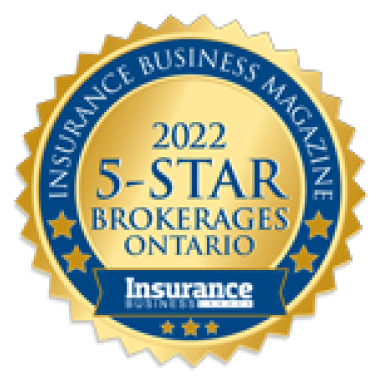Closing an Estate in Canada: Avoid These Major Pitfalls
Navigate the complexities of closing an estate in Canada and maneuver its insurance implications with expert guidance from GetCertain.ca.
Understanding the Estate Closing Process
Closing an estate in Canada involves challenging terrain, laden with intricate legalities and obligations. These complexities range from settling debts and distributing assets, to dealing with an avalanche of tax and insurance implications.
Overlooking insurance nuances during the Canadian estate closing process could potentially result in legal complications and financial losses.
Key legal considerations require keen attention during this process. Ensuring accurate asset valuation, recognizing tax obligations and understanding insurance nuances are critical tasks to warrant a proficient estate closure.
Initial Steps for Executors
Neatness in planning and absolute comprehension of legal obligations is the cornerstone of a successful estate closure. As an executor, your initial steps in estate management are significantly influenced by these foundational aspects.
- Establish a comprehensive inventory: Start by assembling all of the deceased’s assets, including bank accounts, investments, real estate, insurances, personal belongings, etc.
- Verify the validity of the will: Make sure the will is legally sound and ascertain its interpretation. Seek legal advice to clarify any ambiguous terms or potential disputes.
- Notification of death: Notify all relevant authorities, such as the Canada Revenue Agency, Service Canada, insurance firms, banks, and others about the demise to prevent identity theft or fraudulent activities.
- Obtain necessary documents: Collect all pertinent documents such as death certificate, probate of will and others that will facilitate asset transfer.
- Ascertain outstanding liabilities: Identify and document all debts and liabilities of the deceased. It’s crucial to clear them off as they can impact the asset distribution.
Identifying and Valuing Assets
In managing an estate, one of the first significant steps is proper asset identification and valuation. Acting prudently in these areas can help mitigate potential insurance hurdles.
- Identify all types of assets including tangible and intangible ones
- Carry out a thorough valuation of each asset
- Ensure appraisals are carried out by qualified professionals
- Understand the role of insurance in preserving asset value
- Consider the potential impact of depreciation on asset valuation
- Ensure that all details of high-value assets are updated in insurance policies
Settling Debts and Liabilities
As an executor, settling the estate’s debts and liabilities is a fine balancing act. It’s crucial to properly manage this task to avoid legal and insurance complications.
- Identify all creditors and inform them about the decedent’s death
- Provide a copy of the death certificate and proof of executorship to each creditor
- Ensure funds are available from the estate to settle outstanding debts
- Prioritize secured over unsecured debts
- File necessary tax returns and ensure all taxes are paid
- Watch for potential insurance claims against the estate
- Consider seeking advice from a legal and insurance expert
Distributing Assets to Heirs
When it comes to fair and legal distribution of assets to heirs, understanding each step and the role of insurance is crucial. Mistakes can have significant consequences, not only financially, but also in terms of family relationships.
- Carefully read and interpret the will or estate plan
- Dedicate time to understand the laws of inheritance and asset distribution in your province
- Consider hiring a probate attorney to guide you through the process
- Pay attention to the specifics of asset ownership
- Notify all heirs in accordance with legal requirements
- Provide all heirs with an inventory of estate assets
- Safeguard asset distribution using an adequate insurance policy
- Consult with an insurance expert to verify if your current insurance has appropriate coverage for estate assets
- Confirm if any asset distribution specifics are covered under your existing insurance plan
Tax Considerations in Estate Closing
The tax aspect of estate closing can be a treacherous path, with hidden liabilities lurking. Understanding the tax implications on estate assets and recognising the role of insurance is crucial to avoid unwanted surprises.
- Identifying potential capital gains tax on investments
- Unearthing potential income tax on RRSP/RRIF
- Highlighting tax on profits from selling property
- Uncovering taxes due on returned income of the deceased for the year of death
- Recognizing the role of insurance in providing funds to cover potential tax liabilities
Insurance Implications in Estate Closing
An imperative part of estate closure is understanding the implications of existing insurance policies. Minimizing potential pitfalls requires thorough perusal of these documents, highlighting their limitations and benefits. Misinterpretation can lead to financial loss.
The essential tactic in maximizing insurance benefits is ensuring policies are fully up-to-date. Failing to do so could lead to unnecessary complications, such as out-of-date beneficiaries or insufficient coverage.
Often ignored, life insurance policies can significantly affect estate division. The death benefits from these policies, tax-free in most cases, quickly provide financial support to the estate beneficiaries.
Don’t ignore property insurance. In estate closure, this insurance covers any property yet to be inherited, protecting the executor and beneficiaries from possible financial burdens.
When dealing with business assets, insurance plays a crucial role. It offers tangible cover for losses that may occur in the process of closing an estate, hence providing peace of mind.
Common Pitfalls in Estate Closing
In closing an estate, common pitfalls are like landmines that might explode if not navigated with caution. Incorrect asset valuation, failure to pay off debts, improper distribution of assets, and neglecting insurance considerations may pose significant risks, demanding careful execution and planning to avoid unwanted surprises.
Possessing a keen insight into these potential hurdles can significantly insulate you from complications. Understanding tax obligations, ensuring adequate insurance coverage, and updating beneficiaries mark the necessity of foresight. It’s about properly armoring yourself before heading into the battlefield of estate closure.
Lack of a Proper Estate Plan
The repercussions of an ill-prepared estate plan are substantial, specifically relating to insurance. Failing to factor insurance policies into the estate plan can result in unintended consequences, leaving beneficiaries inadequately covered or even financially burdened.
A comprehensive estate plan, inclusive of insurance details, is a recipe for a smooth estate closing. It provides detailed instructions ensuring all assets, including insurance policies, are accounted for and beneficiaries are suitably provided.
Ignoring insurance implications while devising an estate plan might lead to unpleasant surprises. It’s crucial to replace outdated insurance policies, modify coverage, and designate beneficiaries appropriately in your estate plan complementing overall disposition.
Incorrect Asset Valuation
Occasional mishaps in asset valuation can drastically impact the closing of an estate. An incorrect evaluation may result in elevated insurance policies or even declined claims during a crucial period.
Misvaluation can pose a specific challenge in the case of life insurance policies. If the insured amount does not correspond with the accurate value of the estate, it can lead to insufficient coverage.
To ensure a smooth estate closure, precision in evaluating assets cannot be overstated. This not only helps in forming an accurate depiction of the estate’s worth but also in estimating suitable insurance premiums.
In the realm of insurance, understanding the relationship between accurate asset valuation and sustainable coverage is vital. It helps mitigating the risk of underinsurance, which can throw a wrench into the closing of an estate.
Failure to Pay Off Debts
Firstly, identifying and settling all debts holds a key role in closing estates. Ignorance or oversight can land executors in hot water with beneficiaries and creditors. Consult with a financial professional to aid in this process.
Unsettled debts can trigger a domino effect, disturbing the estate closure process. They, in turn, may block insurance claims, leading to complex legal tangles. It’s imperative that executors prioritize handling these financial obligations.
Consideration of insurance implications is crucial in managing unpaid debts. An unsettled debt may deny payout from a life insurance policy intended for estate liquidity. Estate experts at getcertain.ca can guide executors through these tricky waters.
Improper Distribution of Assets
A pitfall in the estate closing process is biased distribution of assets. A lack of an objective assessment in dividing assets could impact insurance rates and long-term financial stability of the estate.
Understanding the intricacies of fair asset distribution is crucial in an estate closure. An executor’s failure to meticulously go through this process could result in financial complications and potential legal disputes down the line.
Impartial distribution of assets ensures that heirs receive their fair share. Establishing an equitable distribution not only prevents familial discord, but also affects the calculation of insurance-related considerations.
Negotiating the distribution maze can be tricky due to emotional connections to assets. This is where expertise comes into play to avoid unnecessary disputes and maintain a firm grasp on insurance premiums, especially with big-ticket assets.
An improper approach to asset distribution may have implications for the overall value of the estate, including its insurance coverage. This is why contacting an estate expert at GetCertain.ca can prove invaluable in guiding you through this complex process.
Insufficient Understanding of Tax Obligations
Understanding and correctly managing tax obligations in estate closures can be a daunting task. Misinterpretations and ignorance can lead to costly errors, creating unexpected financial burdens for the beneficiaries.
The repercussions of incorrect tax assessments can drastically impact insurance payouts in estate closures. It’s crucial to thoroughly evaluate tax obligations and potential liabilities to ensure maximum payout to the heirs and avoid conflicts with insurance providers.
Neglecting Insurance Considerations
Insurance considerations are often overlooked during estate closure. Executors frequently fail to update policies, neglect to ensure sufficient coverage, or disregard the implications of insurance monies on the estate’s value.
A thorough insurance assessment is crucial to a secure estate. It’s not just about paying out beneficiary amounts; it’s about assessing the estate’s coverage needs and exploring insurance mechanisms to shield the estate from potential liabilities.
Discrepancies in insurance policy details, forgotten coverages, or unaccounted insurance payments can complicate the settlement process and ignite disputes among the heirs. This could lead to lengthy delays and unnecessary stress.
Taking time to understand and tackle insurance tasks can ease the estate closure process. More so, it can avert pitfalls linked to financial losses, legal troubles, and disagreements among beneficiaries. It’s not just a wise move, it’s a responsibility.
Avoiding Insurance Pitfalls in Estate Closing
Adeptly managing insurance aspects during an estate’s closure necessitates thorough planning to avert potential pitfalls. Preserving the estate’s value lies not only in proficient asset distribution but also in executing an insurance strategy that ensures optimal coverage and updated beneficiary details.
Experienced estate experts are indispensable to a finely orchestrated insurance distribution process in estate closures. They provide invaluable aid in navigating the ins and outs of insurance policies, understanding limitations, and ensuring the decedent’s wishes and interests of the beneficiaries are upheld.
Ensuring Sufficient Coverage
Understanding insurance coverage during estate closure is like navigating a labyrinth of complexity. It is pivotal in ensuring that the estate’s value is protected and efficiently transferred.
Insufficient coverage can be a minefield. Proper insurance safeguards the estate assets from unexpected liabilities, paving way for a smooth transition.
Underinsured estates could face dire consequences. It could mean settling for less than the asset’s worth or depleting the estate’s value to cover liabilities.
An adequately insured estate equals a secured legacy. It entails a comprehensive approach to insurance, protecting the estate’s integrity and preventing potential losses.
Updating Beneficiaries and Policy Details
Beneficiary designation plays a pivotal role in estate management. An incorrect or out-of-date beneficiary can lead to unexpected distribution of assets, causing complications in closing the estate.
Regularly reviewing and updating your insurance policies is crucial. Lack of diligence in this area might cause obstacles through the estate closing process.
Alterations in policy details can evade potential pitfalls in estate closure. For instance, dynamics such as marital status or financial positions can affect your policy and, ultimately, your estate.
Ensure you keep your estate plan concurrent with any changes in your personal and financial life. Ignoring these shifts could potentially derail the estate closing process, provoking unnecessary delays and disputes.
Subtle changes in your life can significantly impact your estate. By conscientiously updating beneficiaries and policy details, you can prevent several hardships that come with estate closure.
Reviewing Coverage for Real Estate
Navigating real estate insurance during estate closure warrants precision. Failing to properly update the coverage can pose significant challenges and unforeseen costs.
Cross-checking insurance policies is an essential component of estate closure. Initiating these updates ensures the estate’s real estate assets are adequately safeguarded, catalysing a successful estate closure.
Considerations for Business Assets
Business assets are an often overlooked aspect within an estate, yet knowing their insurance implications is vital. Missteps here can lead to significant financial consequences, especially if the deceased owned a share in a business or entire business entities.
Comprehensive understanding of business insurance policies is critical. It goes beyond merely acknowledging their presence in the estate. Each policy, it’s terms, validity, and payouts should be scrutinized diligently.
Are the business assets adequately insured? Business owners often opt for ‘key person insurance’ or ‘buy-sell agreements’. Examining these policies will provide a clearer picture to executors on how to proceed with estate closing.
Remember, insurance doesn’t only apply to tangible assets. It covers intangible ones too, like intellectual properties. Make sure all potential liabilities are taken into consideration during estate settlement. Don’t hesitate to seek expert assistance on GetCertain.ca.
Recognizing Policy Limitations
Estate closure might seem daunting, especially when it comes to understanding policy limitations. Despite being a key concern, it is often demystified through comprehensive analysis and sound advice.
Knowing the ins and outs of your insurance policy is essential. This understanding is instrumental in simplifying estate management, preventing any potential legal hiccups.
Policy limitations are not to be overlooked. Ignorance can lead to complications and delays, thus making it crucial to devote requisite attention to them during the estate closing processes.
Get Expert Help with Estate Closing
To navigate the intricate realm of estate closure, it seems wise to avoid underestimation. The complex procedures, tax implications, and insurance matters could become daunting without expert assistance.
Turning to experts at GetCertain.ca could save you from unnecessary stress. Their unique expertise in estate closures ensures that all regulatory, tax and insurance requirements are smoothly fulfilled without missing a beat.
Contact an Estate Expert at GetCertain.ca
Navigating the sensitive process of estate closure alone can result in costly pitfalls. For comprehensive guidance, reach out to our experts at GetCertain.ca, your trusted partner in Canadian estate management.
If you are seeking professional assistance for estate management, GetCertain.ca stands out as your first choice. Our team of experts offers insightful advice on avoiding common errors and ensuring a smooth transition.
At GetCertain.ca, we offer personalised solutions to avoid mistakes in insurance implications, asset distribution, and tax obligations during estate closure. Trust us for an efficient and timely closure process.













